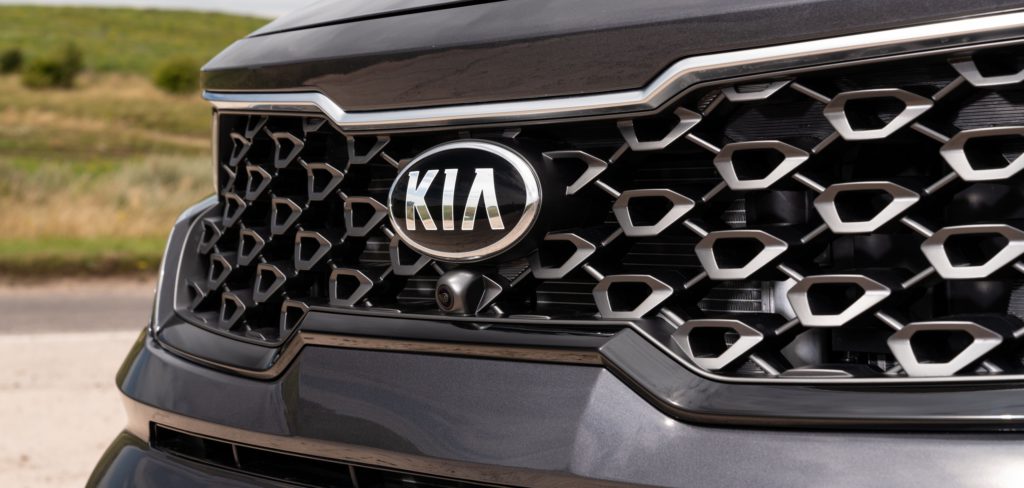Kia commits to mobility services
28 August 2020

28 August 2020
Kia Motors Corporation (Kia) is expanding its partnerships with mobility companies to ′meet the needs of a diverse range of customers worldwide.’ The move will mean increasing its fleet sizes, providing customised transport offerings and launching new rental capabilities. In July, Kia also announced the formation of Purple M, a startup focused on electric-vehicle (EV) mobility services.
From the outset of 2020, Kia has been revealing how it wants to change the way these platforms operate. In January, the carmaker announced ′Plan S,’ its long-term strategy to shift focus away from internal combustion engine (ICE) vehicles towards EVs and other customised mobility solutions. This strategy includes establishing hubs in cities with strict environmental regulations, as well as developing services based on electric and autonomous vehicles in the long term.
′Kia is striving to provide customised products and differentiated mobility services based on its long history in automotive manufacturing,’ Kia’s President and CEO Ho Sung Song said. ′Kia will further enhance its collaboration with global partners to offer regionally customised mobility services as it implements its ′Plan S’ strategy.’
Regional strategies
During a visit to the carmaker’s Sohari plant in South Korea, Song revealed the company’s plans to develop different regional approaches to its mobility partnerships. So, in South Korea, the carmaker will build on its ′Kia Flex’ vehicle subscription programme by expanding the fleet to 200 vehicles. The line-up will include the new Carnival, which is nearing its launch date in the country, as well as a new EV model to be added in the future.
Meanwhile, in Europe, Kia will collaborate with its partners to provide customised offerings. In 2018, Kia worked with Spanish energy company, Repsol, to establish a car-sharing service called ′WiBLE’. Currently operating with a fleet of 500 Niro plug-in electric hybrids (PHEVs), it allows customers to rent and return vehicles at designated locations on a ′free-floating’ system. Kia plans to provide a multi-modal service in the future, which will offer multiple means of travel, like public transport and car-sharing.
Later this year, the manufacturer also intends to launch a dealer mobility service in Italy and Russia. This will enable dealers to rent out vehicles for any period, from a single day up to a full year. Kia hopes to gradually go global with the offering in future.
In the US, the company plans to accelerate the electrification of its fleet and enhance cooperation with its mobility partners. The carmaker provided 200 Niro EVs to Lyft last year and this year it supplied 44 Niro HEVs to MoceanLab, Hyundai Motor Group’s mobility service company.
In emerging markets, the South Korean manufacturer has partnered with companies like Ola, India’s largest ride-hailing company, Revv, an Indian car-sharing company, and Grab, Southeast Asia’s largest ride-hailing company. Through these partnerships, Kia hopes to better understand the needs of its customers in the development of future vehicles.
Purple M
Investing further in mobility solutions, Kia has also partnered up with CODE42.ai, a technology firm focused on the transition to autonomous Transportation-as-a-Service (TaaS). Together, they have launched a joint venture called Purple M.
This new company aims to establish a flexible e-mobility platform, as well as develop a sustainable EV ecosystem. While consumer interest in EVs is on the rise, mobility services are still driven primarily by ICE vehicles. Kia reasons that this leaves room for an e-mobility ′first mover’.
′With the newly established Purple M, Kia will be reborn as a leader for the era of e-mobility,’ said Song. ′CODE42.ai is a leading Korean company in the field of future innovation technology, and is the best partner for successfully promoting a differentiated e-mobility service business.’
Purple M will use CODE42.ai’s Urban Mobility Operating System (UMOS), a cloud-based platform that integrates autonomous vehicles and air transportation services. This includes e-hailing, fleet management, demand-responsive shuttles and smart logistics.
′Our goal is to accelerate the era of electric vehicles through Purple M,’ said Chang Song of CODE42.ai. ′The integrated mobility and logistics platform UMOS will be central to building an e-mobility ecosystem encompassing everything from infrastructure to services.’
The two companies will use the new platform to establish further collaborative partnerships with specialist providers, hoping to develop a flexible e-mobility infrastructure. In particular, Purple M aims to help revitalise South Korea’s domestic mobility industry. It hopes to achieve this by cooperating with mobility market players while presenting new standards in what Kia calls ′the post-coronavirus (COVID-19) era’.
COVID-19 complications
Currently, manufacturers are having to focus on EV production to keep in step with emissions regulations. But as the COVID-19 economic downturn means fewer people will have the money to buy expensive vehicles, traditional means of car ownership might be questioned by consumers.
This, arguably, is exactly what services like Purple M have been designed for – a chance to challenge the status quo of ownership. Why own an expensive EV when you can rent one as and when you need it?
On the other hand, there may be some reluctance to make use of these offerings straight away. As consumers seek to avoid public transport and contact with other people, shared-mobility services may suffer the same fate. Providers like Purple M will need to routinely disinfect shared vehicles in order to reassure customers.
What is more, as offices remain closed to prevent further spread, fewer people will need a vehicle to commute. More broadly, if lockdowns continue to be intermittently enforced, travel will take a nosedive across the board. Until a vaccine is created, there will continue to be less person-to-person interaction and, consequently, far fewer journeys.
So, in the short term, the mobility services offered by the likes of Kia might be facing an uphill battle. But in the long term, consumers may recognise the potential of breaking free from traditional forms of car ownership and only pay for a car when they have an immediate need for one.